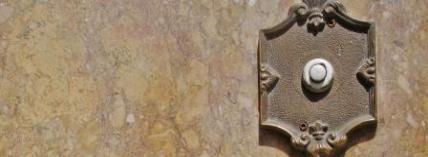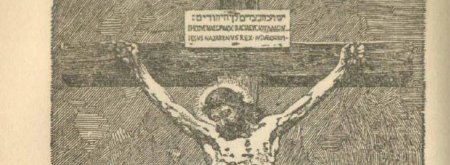What to say to Jehovah's Witnesses
This is Appendix 2 to Mike Licona's book Behold, I Stand at the Door and Knock: What to say to Mormons and Jehovah’s Witnesses when they knock on your door.
If anyone comes to you and does not bring this teaching, do not receive him into your house, and do not give him a greeting; for the one who gives him a greeting participates in his evil deeds. (2 John 10-11)
Do these verses prohibit you from inviting Mormons and Jehovah’s Witnesses into your home? At first look, it would seem so. However, an understanding of the social setting in which John wrote is very beneficial.
During the first century, when Christianity was getting off the ground, it was customary for traveling teachers of Christianity to receive hospitality in the form of room and board at someone’s home. A first century Christian document named The Didache (meaning The Teaching [of the Twelve Disciples]), and written prior to 2 John, spells out how the church was to receive and support these traveling teachers (Chapters 11-13).
The majority of New Testament scholars agree that John is saying one of two things in 2 John 10. When John said, “do not receive him into your house,” he may have meant that false teachers were not to be given the typical hospitalities of room and board extended to traveling teachers. The term “greeting” would mean to greet him as a brother in the Lord. A second possible interpretation is based on a more literal translation, “do not receive him into the house or give him any greeting.”[1] “[T]he house” may be understood as the house where Christians met and worshipped. During the first century, there were no church buildings as we have today. Christians met in a person’s home. A false teacher should not be received by “the house-church” and given the opportunity to spread false doctrine. The term “greeting” would mean to welcome the false teacher into the congregation and encourage him.
Therefore, the command not to receive the false teacher into your home means one of two things:
1) Do not extend the hospitalities of room and board, as was customary to do for traveling Christian teachers, to a false teacher.
or
2) Do not welcome the false teacher into a house-church congregation and allow him to teach.
The “greeting” John refers to is more of a welcome and encouragement than the mere cordiality that it is today. As the late New Testament scholar F.F. Bruce says: “The injunction not to receive any one who does not bring ‘the teaching of Christ’ means that no such person must be accepted as a Christian teacher or as one entitled to the fellowship of the church. It does not mean that (say) one of Jehovah’s Witnesses should not be invited into the house for a cup of tea in order to be shown the way of God more perfectly in the sitting-room than would be convenient on the doorstep.”[2]
References
[1] As the New Revised Standard Version translates it.
[2] F.F. Bruce, The Epistles Of John (Grand Rapids: William B. Eerdmans Publishing Company, 1970), p.142.
© 1998 Mike Licona
This article is reproduced from Mike Licona's book Behold, I Stand at the Door and Knock: What to say to Mormons and Jehovah’s Witnesses when they knock on your door. It is reproduced here by the kind permission of the author.



